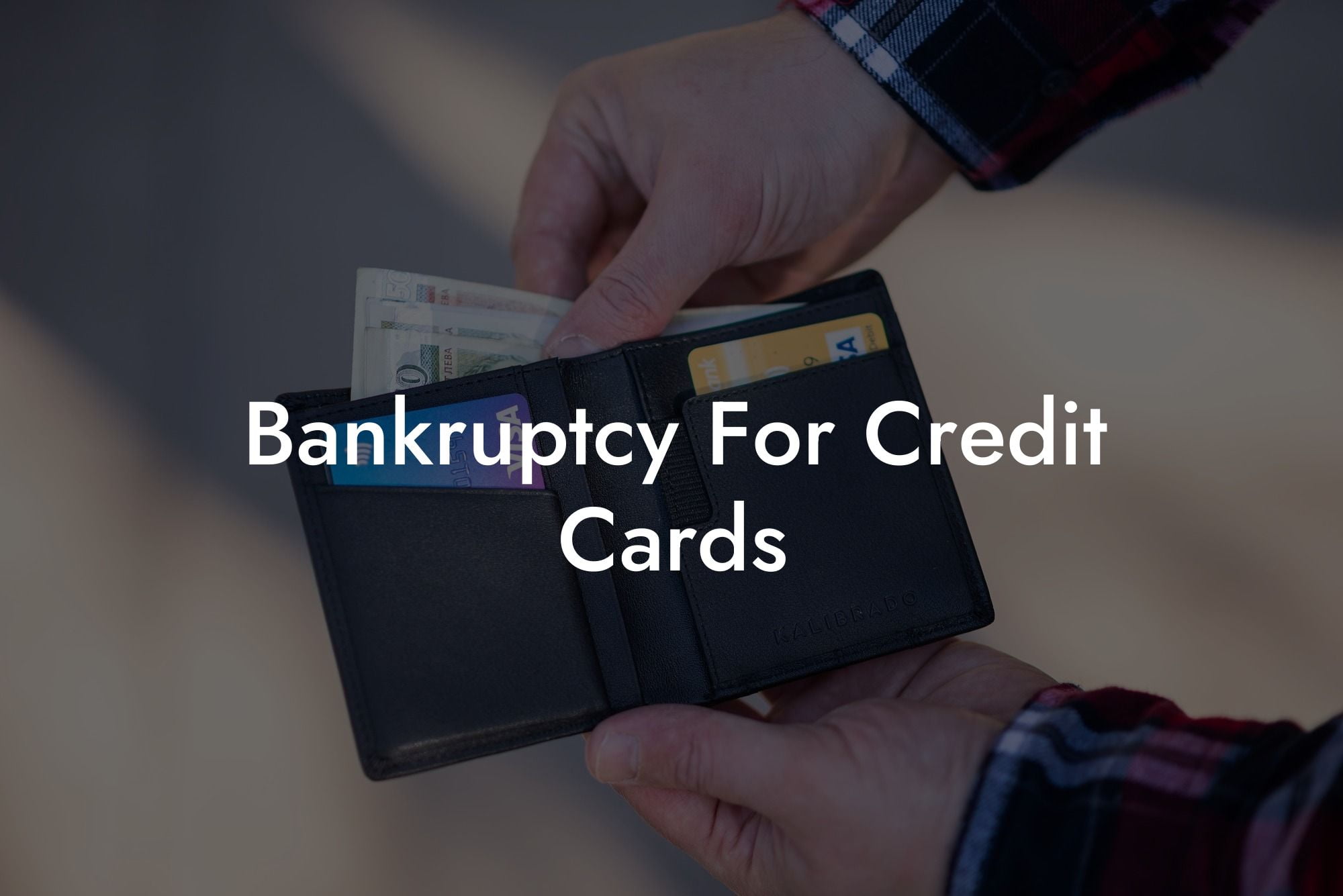Dealing with credit card debt can be overwhelming, but what if there's no way out? In some cases, bankruptcy might be the only solution. If you're feeling trapped by credit card debt, it's essential to understand how bankruptcy works, when it's the best solution, and how it can impact your future finances. Let's dive into the ins and outs of bankruptcy for credit cards and discover if this is the right path for you.
Quick Links to Useful Sections
Bankruptcy For Credit Cards Table of Contents
What is Bankruptcy?
Bankruptcy is a legal process designed to help individuals and businesses struggling with unmanageable debt. It offers a way to discharge or restructure debts to make them more manageable. There are two main types of personal bankruptcy:
Chapter 7 Bankruptcy
Chapter 7 bankruptcy involves liquidating your non-exempt assets to pay off as much debt as possible. After that, the remaining unsecured debts, like credit card debt, are discharged. This type of bankruptcy is suitable for individuals with few assets and low income.
Chapter 13 Bankruptcy
Chapter 13 bankruptcy, also known as the "wage earner's plan," allows you to restructure your debts by proposing a repayment plan. By consolidating your debts, you can pay them off over three to five years. This type of bankruptcy is suitable for individuals with a regular income and assets they want to protect.
When Should You Consider Bankruptcy for Credit Card Debt?
Bankruptcy should be the last resort for dealing with credit card debt. Before considering bankruptcy, explore other available debt relief options, such as:
- Debt consolidation loans
- Credit counseling
- Debt settlement
Bankruptcy may be a viable option if you:
- Can't make minimum payments on your credit cards
- Are facing lawsuits or wage garnishments from creditors
- Have tried negotiating with your creditors without success
- Cannot afford to repay your debts through a debt management plan or settlement
How Does Bankruptcy Impact Your Financial Future?
While bankruptcy can provide relief from credit card debt, it's not without consequences:
- Credit Score: Filing for bankruptcy will significantly lower your credit score, making it harder to obtain loans or credit cards in the future.
- Credit Reports: A bankruptcy filing will remain on your credit reports for seven to ten years, depending on the type of bankruptcy.
- Employment and Housing: Some employers and landlords may use bankruptcy as a factor when considering applicants.
Bankruptcy For Credit Cards Example:
Meet Jessica, a 32-year-old single mother of two who has accumulated $45,000 in credit card debt. She lost her job due to the pandemic and is struggling to find a new one. With no income, she can't make her minimum credit card payments, and her debt continues to grow.
Jessica explores various debt relief options but finds that she doesn't qualify for a debt consolidation loan due to her poor credit. She also can't afford to pay for a debt management plan through a credit counseling agency. After consulting with a bankruptcy attorney, Jessica decides to file for Chapter 7 bankruptcy.
By filing for bankruptcy, Jessica liquidates her non-exempt assets to pay off a portion of her debt. The remaining credit card debt is discharged, freeing her from the overwhelming burden. Although her credit score takes a hit, she can now focus on rebuilding her financial life without the weight of her past credit card debt.
Bankruptcy for credit cards should be a last resort, but it might be the best option for those drowning in debt. Before making any decisions, explore all available debt relief options and consult with a bankruptcy attorney to ensure you're making the best choice for your financial future. If you found this guide helpful, please share it with others who may be struggling with credit card debt. And don't forget to explore other informative guides and resources on Flik Eco for all your personal finance needs!













